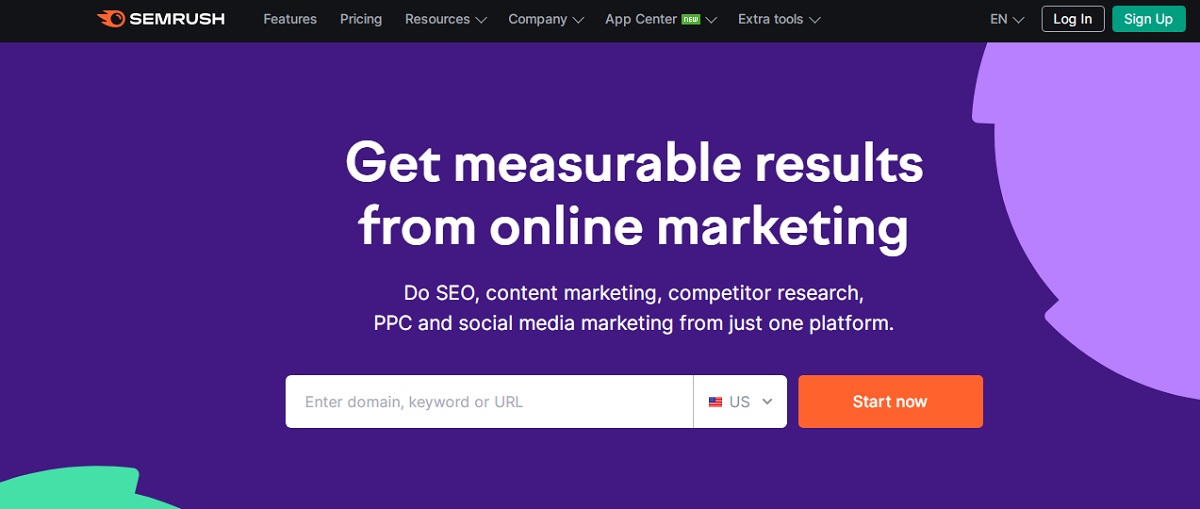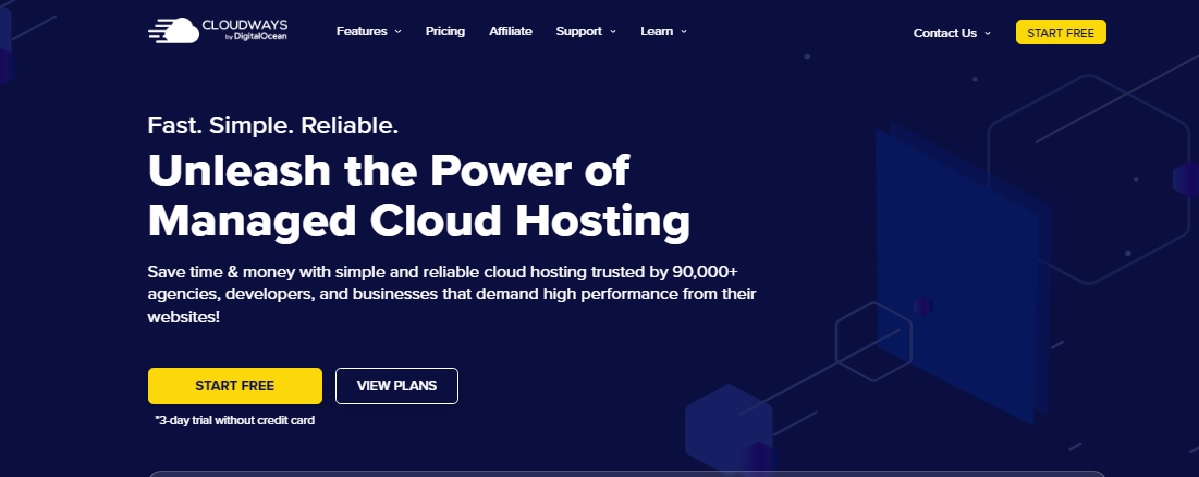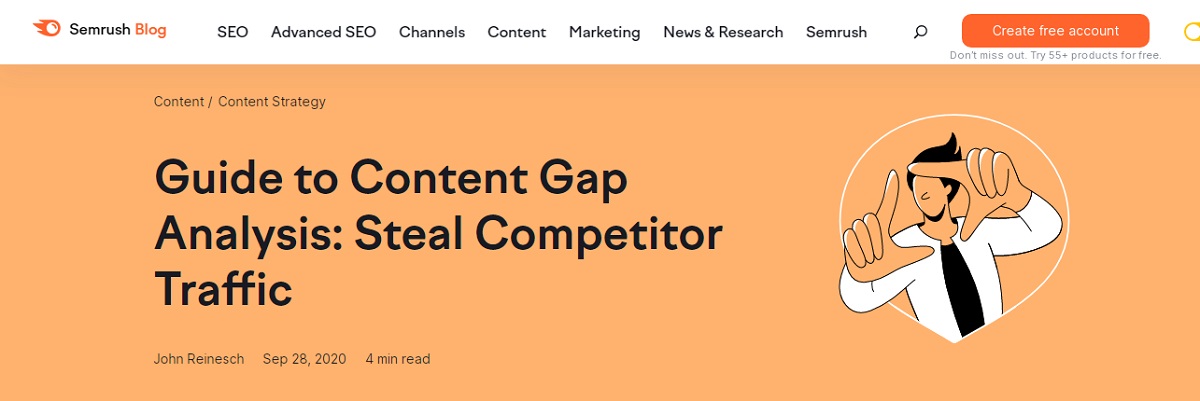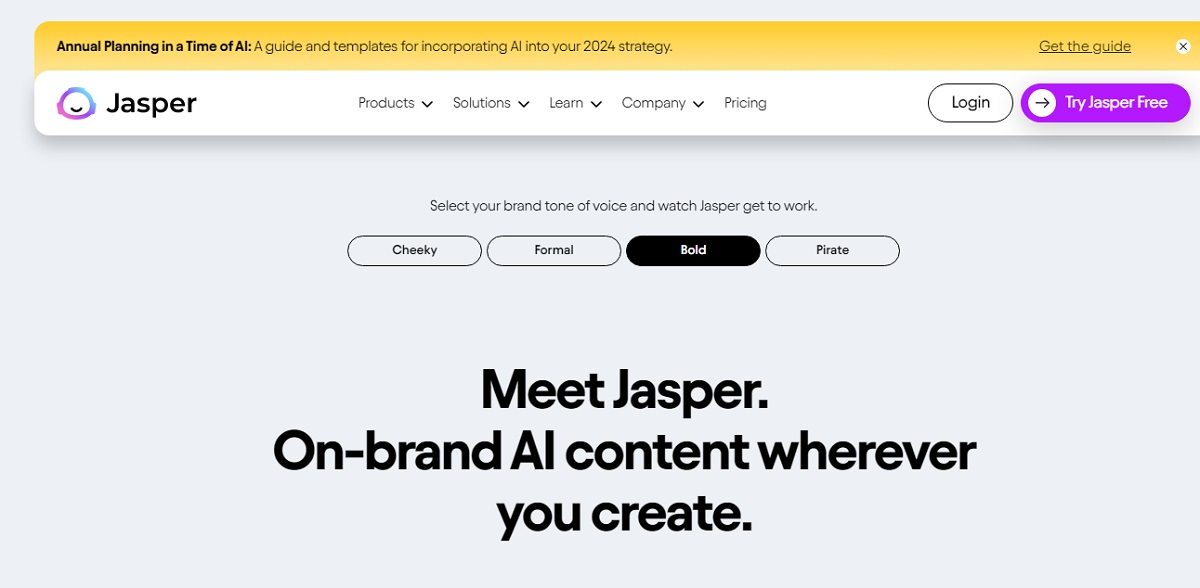SEO For Startups: Your Complete Step-By-Step Guide to Organic Growth!

When you buy something through one of the links on our site, we may earn an affiliate commission.
SEO for startups isn't just a buzzword—it's the secret sauce behind digital visibility and success. Dive into this complete guide and discover how startups can leverage SEO to rocket past the competition and dominate the online realm!
Contents
How to Approach SEO for Startups
This article is based on the following assumptions:
- You are part of a small business
- Monthly budget for SEO: $500 - $1,000
- You have some basic knowledge of SEO
I would like to divide SEO for startups into three stages:
- Technical SEO - Implementation, Execution, and Maintenance. The first two should be executed by an external SEO service and should not take long. Maintenance should be done in-house.
- On-Page SEO - same structure as above, and the two can run in parallel.
- The third stage is the ongoing process of marketing through all SEO channels. In this case, I believe in an SEO tactic that targets authority using blog posts.
The SEO tool I recommend for startup SEO tasks is SEMrush.

How to find the right SEO company or SEO expert for your needs.
I suggest two ways to find an SEO service:
- Find somebody in your network who can suggest a service they are using and are happy with in terms of the results and price.
- The second way needs more investigation; it is Fiverr or Upwork.
Optimize for Technical SEO

Optimize technical SEO to ensure that search engines can:
- Crawl efficiently
- Interpret and index your website's content
And to maximize visibility and user experience.
Secure Fast Hosting
Google uses site speed as a ranking factor. You first need a fast hosting provider to achieve a high site speed.
Remember, the best hosting depends on your specific needs, expected website traffic volume, the location of your potential customer, and your budget. Always check recent reviews and performance benchmarks when choosing a hosting provider.
Here are a few providers known for speed:

Improve Page Load Speeds
Improving page load speed is essential for both user experience and SEO. Here are some effective strategies to enhance your website's load time.
- Optimize Images: Use modern formats like WebP.
- Minify and Combine CSS, JavaScript, and HTML files.
- Use a Content Delivery Network (CDN): Store copies of your website on multiple servers located globally.
- Limit the number of different fonts used on your website.
- Enable GZIP or Brotli Compression.
- Prioritize Above-the-Fold Content: Use techniques like lazy loading for images and asynchronous loading for CSS and JavaScript.
- Limit Third-Party Scripts: Minimize the number of third-party scripts and plugins. Defer non-critical JavaScript to stop it from blocking the DOM.
Regularly test your website's speed using tools like:
Those tools can provide specific recommendations based on your site's current setup.
Ensure a Mobile Friendly Experience
A mobile-friendly website is important for the following reasons:
- Expanding Mobile Usage
- Improved User Experience
- SEO Advantages
- Higher Engagement & Conversion
- Avoiding Penalties
- Faster Loading Times
- Social Media Traffic: Most website traffic from social media platforms comes via mobile devices.
A mobile-friendly website is a must for modern web design and digital strategy.
Resolve Site Structure Issues
The following additional factors will contribute to a positive experience for your users and Google.
- 404 page - Having a 404 page helps to retain users.
- Redirects - Minimize the number of redirects and avoid redirect loops. It will improve site speed.
- HTTPS - Secure your site; HTTPS is a ranking factor.
- XML sitemaps - Generate XML sitemaps to help Google index your site and submit them to Google Search Console.
- Robots.txt - Use a robots.txt file to advise search engine bots about pages of your site that they shouldn't crawl.
- Schema markup - Use structured data to provide search engines with more information about your content.
- Crawl errors - Use Google Search Console to analyze your site. Fix any existing crawl errors.
Fix Web Page Errors
Use the best tool, SEMrush, to perform a complete SEO audit. Fix as many errors as you can.
Optimize On-Page SEO

Optimize on-page SEO as it directly impacts how search engines understand and rank your pages, ensuring that your website is relevant and accessible to users.
By refining elements like meta tags, keywords, content quality, and internal linking, you enhance your site's relevancy for targeted search queries.
On-page optimization will improve your site's visibility in SERPs and lead to the following:
- Better user experience
- Increased traffic
- More conversions.
Optimize Existing Posts for Main Keywords
Optimizing existing posts for the relevant keyword is essential for the following reasons:
- Improved Search Engine Rankings
- Maximize Traffic
- Increased Engagement
- Long-Term Value
- Competitive Edge
- Enhanced User Experience
- Optimized Internal Linking
For effective SEO optimization, place the target keyword strategically in the following areas:
- Title Tag: Near the beginning for higher visibility in search engine results.
- Meta Description
- URL: Incorporate the keyword into the URL slug if possible.
- Headings and Subheadings: Especially in H1 (main header) and H2 tags.
- First 100 Words
- Body of Content: Naturally dispersed throughout without specific keyword stuffing.
- Image Alt Text
- Inbound Internal and External Links: Use the specific keyword in the anchor text.
Optimize Headlines & Meta Tags
Optimize headlines and meta tags for enhanced visibility in search engines, improved click-through rates, and providing a clear idea of the content's subject.
Here's how you can optimize these.
Headlines (Title Tags):
- Keyword Placement: Preferably place the primary keyword at the beginning of the headline.
- Length: Keep the title tag within 50-60 characters to display correctly in search engine results.
- Relevance: Ensure that the headline accurately reflects the content of the page.
- Unique Titles: Generate a unique title for every page. Avoid confusion and duplicate content issues.
- Emotion & Curiosity: Craft headlines that evoke emotion or curiosity, making users more likely to click.
- Branding: Add your brand or website name at the end of the title.
Meta Descriptions:
- Keyword Usage: Incorporate the primary keyword and related terms naturally within the description.
- Length: Aim for a meta description length of 150-160 characters.
- Compelling Content: Write it as a concise teaser for the page, enticing users to click.
- Unique Descriptions: Each page should have a unique meta description.
- Call-to-Action (CTA): Incorporate a subtle CTA to encourage clicks.
Use Relevant & Unique Images
Using relevant and unique images in posts is beneficial for several reasons:
- Engagement Boost: Images capture attention, making readers more likely to engage.
- Shareability: Visually appealing high-quality content will likely be shared on social media platforms and help with link building.
- Comprehension Aid
- SEO Advantage
- Authenticity
- Emotional Connection
- Authority
Integrating relevant and unique images enhances user experience and digital marketing efforts.
Research Your Competition
When implementing SEO for startups, research your competition's SEO efforts. Strategize for SEO and stay ahead.
Here's how to conduct a comprehensive competitive SEO analysis:
- Identify Your Competitors: Use SEMrush to find competitors ranking for your target keywords.
- Analyze Keywords: Use SEMrush to see which keywords they rank for. The tool will provide insights into their target keywords, keyword rankings, and the volume of traffic those keywords bring.
- Content Analysis: Look at the type, quality, and frequency of their publishing. Understand content gaps and opportunities by comparing their content to yours.
- Monitor Social Signals: Social interactions can indirectly influence SEO.
- Implement Local SEO (if applicable): What Is It & How to Do It - an excellent article for you to read.

After gathering this data, the key is to analyze the information to find gaps in your strategy, potential opportunities, and areas where your competitors excel.
Create Content to Build Authority

The main reason I support Topical Authority is that it offers the possibility of success without backlinks.
To establish topical authority, assess your E-E-A-T (Experience, Expertise, Authoritativeness, and Trustworthiness) standing.
An assessment involves:
- Examining your firsthand knowledge.
- Evaluating your qualifications.
- Gauging your industry reputation.
- Ensuring the trustworthiness of your content.
An in-depth understanding of your E-E-A-T status can pave the way for enhanced user trust and better Google rankings.
One of the cornerstones of topical authority is a Topical Map.
To understand those subjects better, I suggest the following resources:
- Topical Authority Changes the Game - Interview with Koray Tuğberk GÜBÜR Video
- Copy my ZERO Backlink SEO Strategy for Massive Google Traffic Video
- Is Topical Authority Real? (Ep. 318) Video
- How to create a topical map for SEO
Do Keyword Research
You can find endless articles on this subject—here are a few:
Niche Keyword Research
How To Find Low Competition Keywords
You can also search for “keyword research” in the SEMrush blog to find a treasure trove of articles, starting with “How To Target the Right Keywords: Keyword Research.”

Identify Content Gaps
In the competitive content marketing world, businesses must recognize and address content gaps to rank well on search engines and engage their audience.
Content gaps are areas where existing content fails to meet audience needs. Addressing these can boost user experience, SEO, visibility, and conversions.
Strategies to spot these gaps can be found in this Guide to Content Gap Analysis.

Once identified, businesses should prioritize and fill these gaps with high-quality, SEO-optimized content and promote it effectively.
The benefits will be increased traffic and heightened engagement.
Plan Your Content Strategy
Use the strategy of Koray Tuğberk GÜBÜR from Holistic SEO to publish a significant quantity of articles between Google Updates.
WHY?
Let me give you an example: suppose you have 50 articles, and you now add 10. This is a significant change (20%), and Google will have to reevaluate your site.
Produce Quality Content
As a small business, producing quality content is essential for:
- Search Engine Ranking: Quality content boosts search result positions.
- User Engagement
- Trust and Credibility
- Backlink Potential
- Repeat Visits
- Evergreen Value
- Conversion Rates
The best tool for creating high quality content is Jasper AI.
As a small business, your content marketing efforts deserve a top tool.

Jasper AI is a prominent AI-powered copywriting tool that efficiently creates content, including:
- Blog posts
- Marketing copy like Google ads
- Social media content
- Landing pages
- Web articles
Starting at $39/month on an annual plan, its notable features encompass generating contextually accurate content, adjustable tone and style, over 50 customizable templates, developer-friendly APIs, and easy integration with tools like Copyscape and Grammarly.
Educate About Your Product
Educate readers about your product to achieve topical authority in SEO.
- Position as Industry Leader and Enhance Brand Awareness: Achieving topical authority not only positions your brand as an industry leader but also amplifies brand awareness. This makes consumers more informed about your offerings and more likely to choose your product over competitors.
- Enhance Visibility: Search engines prioritize authoritative content. When you consistently produce educational material around your product, it signals to search engines that you are a knowledgeable source in that domain.
- Drive Organic Traffic: Users often search for detailed explanations, reviews, and tutorials related to products. By educating them, you cater to these queries, drawing organic traffic to your site.
- Fuel Content Strategy: A focus on education provides a rich source of ideas, from tutorials to case studies, that can bolster your content marketing strategy.
Include Topics that Support Your Product
In addition to education, including topics that support your product is essential to achieve topical authority for the following reasons:
- Comprehensive Understanding: Addressing supplementary topics gives users a holistic understanding of your product within its broader context or industry.
- Higher Engagement: Diverse yet related content can cater to different segments of your audience, leading to better engagement and longer dwell times.
- Enhanced User Experience: By covering supportive topics, you're addressing users' potential questions or concerns, offering them a one-stop resource.
- Link-Building Opportunities: Comprehensive content on related subjects can attract backlinks from various sources, further boosting your site's authority.
- Improved Sales Funnel: Addressing related topics can guide users through different stages of the buyer's journey, from awareness to consideration to decision, improving conversions.
SEO for Startups: What Not to Do
Try not to take part in any of the following practices—it may lead to penalties or a waste of money.
Avoid Long-Term Contracts with SEO Agencies
Long-term contracts are a risk for your business.

Here are several reasons why you should avoid getting locked into long-term agreements:
- Performance Concerns: If an agency isn't delivering results or fulfilling expectations, a long-term contract can make it challenging to transition to another provider.
- Cost Implications: Long-term contracts might offer little flexibility in adjusting the budget, even if your business faces financial challenges.
- Lack of Accountability: Some agencies become complacent if assured of a long-term agreement, potentially leading to a drop in effort or quality.
- Potential for Hidden Costs: Long-term contracts might have clauses that introduce additional costs for specific services or adjustments, which could be unfavorable for businesses.
Shorter contracts provide:
- Flexibility
- Opportunities to reassess your search engine optimization strategy
- Pricing renegotiations
- Redefined deliverables and services
While these are general considerations, you should always:
- Conduct due diligence
- Assess your needs
- Carefully review any contract terms before committing
Don’t Buy Backlinks
It is tempting to take shortcuts, but buying backlinks is not a wise SEO strategy. Consider:
- Violates Google's Webmaster Guidelines: Buying links is against Google's policies.
- Risk of Penalties: Websites caught buying links can face manual actions or algorithmic penalties, causing significant drops in rankings.
- Potential for Toxic Links: These are backlinks from low-quality, spammy, or questionable domains.
- Unnatural Link Profiles: Rapid acquisition of a large number of links looks unnatural and can raise red flags with search engines.
- No Control Over Link Removal: Paid links might be removed without notice.
- Links Might Not be Relevant: They may be unrelated or off-topic sites, which can dilute your link profile's relevance.
- Potential for Link Schemes: Being associated with link farms or networks can negatively impact your site's reputation with search engines.
- Loss of Credibility: It can damage your brand's credibility and trustworthiness.
Avoid Black Hat Strategies
Black hat SEO strategies are unethical tactics that might give short-term results.
But at the same time, they can lead to severe penalties from search engines, including ranking drops or de-indexing. Check out our article on black hat SEO to learn more.
For a winning SEO strategy, stick to ethical, white-hat practices!
Monitor Your SEO Success
Monitoring your success is essential to:
- Track Progress: It allows you to measure the effectiveness of your SEO efforts over time and see improvements in rankings, traffic, and conversions.
- Optimize Strategy: By understanding what's working and what's not, you can refine and adjust your strategies for better results.
- ROI Measurement: Demonstrating a clear return on investment is vital for justifying the time and resources spent on SEO efforts.
- Identify Issues: Monitoring can help detect technical problems, penalties, or sudden drops in search engine ranking, enabling timely interventions.
- Understand User Behavior: Google Analytics provides insights into how users interact with your content, helping you improve user experience and content relevancy.
- Adapt to Changes: The search engine optimization landscape is always evolving. Regular monitoring allows you to adapt to algorithm changes and industry shifts.
In essence, monitoring SEO success ensures that your efforts are productive, allowing for informed decisions and continuous improvement.
SEO for Startups: Conclusion
In conclusion, SEO is a sound strategy and a fundamental pillar for startups aiming to establish a solid digital footprint.
SEO ensures that startups are visible to their target audience, driving organic traffic and cultivating brand credibility.
By integrating SEO best practices from the outset, startups optimize their online presence and lay the foundation for sustainable digital growth.
Want to learn step-by-step how I built my Niche Site Empire up to a full-time income?
Yes! I Love to Learn
Learn How I Built My Niche Site Empire to a Full-time Income
- How to Pick the Right Keywords at the START, and avoid the losers
- How to Scale and Outsource 90% of the Work, Allowing Your Empire to GROW Without You
- How to Build a Site That Gets REAL TRAFFIC FROM GOOGLE (every. single. day.)
- Subscribe to the Niche Pursuits Newsletter delivered with value 3X per week
My top recommendations

















